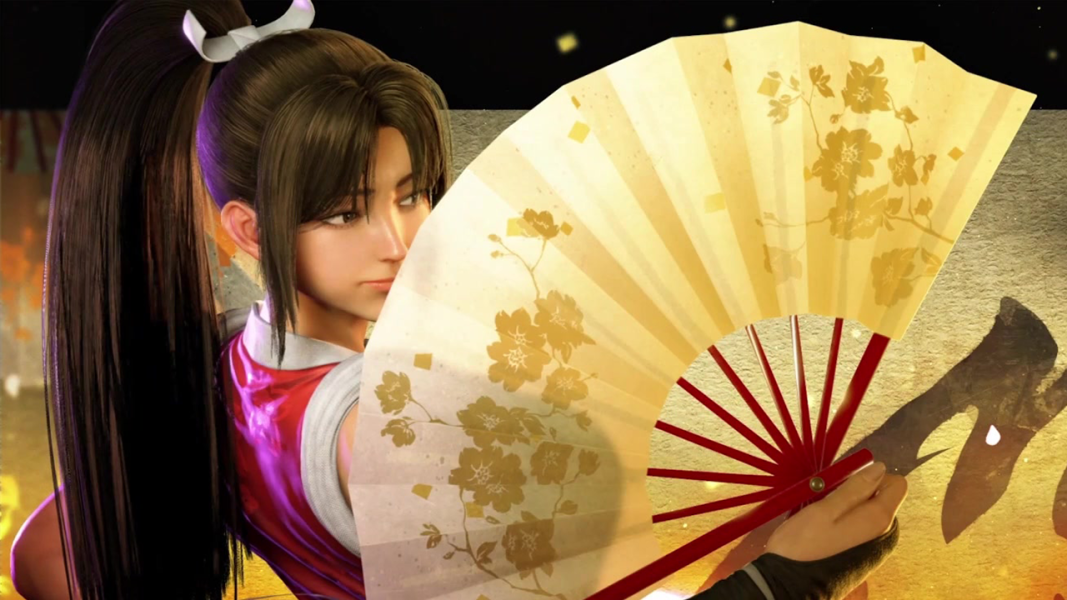How Calvin Klein and Tommy Hilfiger got caught in Trump’s trade war with China – CNBC

Credit CardsLoansBankingMortgagesInsuranceCredit MonitoringPersonal FinanceSmall BusinessTaxesHelp for Low Credit ScoresInvestingSELECTAll Credit CardsFind the Credit Card for YouBest Credit CardsBest Rewards Credit CardsBest Travel Credit CardsBest 0% APR Credit CardsBest Balance Transfer Credit CardsBest Cash Back Credit CardsBest Credit Card Welcome BonusesBest Credit Cards to Build CreditSELECTAll LoansFind the Best Personal Loan for YouBest Personal LoansBest Debt Consolidation LoansBest Loans to Refinance Credit Card DebtBest Loans with Fast FundingBest Small Personal LoansBest Large Personal LoansBest Personal Loans to Apply OnlineBest Student Loan RefinanceSELECTAll BankingFind the Savings Account for YouBest High Yield Savings AccountsBest Big Bank Savings AccountsBest Big Bank Checking AccountsBest No Fee Checking AccountsNo Overdraft Fee Checking AccountsBest Checking Account BonusesBest Money Market AccountsBest CDsBest Credit UnionsSELECTAll MortgagesBest MortgagesBest Mortgages for Small Down PaymentBest Mortgages for No Down PaymentBest Mortgages with No Origination FeeBest Mortgages for Average Credit ScoreAdjustable Rate MortgagesAffording a MortgageSELECTAll InsuranceBest Life InsuranceBest Homeowners InsuranceBest Renters InsuranceBest Car InsuranceTravel InsuranceSELECTAll Credit MonitoringBest Credit Monitoring ServicesBest Identity Theft ProtectionHow to Boost Your Credit ScoreCredit Repair ServicesSELECTAll Personal FinanceBest Budgeting AppsBest Expense Tracker AppsBest Money Transfer AppsBest Resale Apps and SitesBuy Now Pay Later (BNPL) AppsBest Debt ReliefSELECTAll Small BusinessBest Small Business Savings AccountsBest Small Business Checking AccountsBest Credit Cards for Small BusinessBest Small Business LoansBest Tax Software for Small BusinessSELECTAll TaxesFiling For FreeBest Tax SoftwareBest Tax Software for Small BusinessesTax RefundsTax BracketsTax TipsTax By StateTax Payment PlansSELECTAll Help for Low Credit ScoresBest Credit Cards for Bad CreditBest Personal Loans for Bad CreditBest Debt Consolidation Loans for Bad CreditPersonal Loans if You Don’t Have CreditBest Credit Cards for Building CreditPersonal Loans for 580 Credit Score or LowerPersonal Loans for 670 Credit Score or LowerBest Mortgages for Bad CreditBest Hardship LoansHow to Boost Your Credit ScoreSELECTAll InvestingBest IRA AccountsBest Roth IRA AccountsBest Investing AppsBest Free Stock Trading PlatformsBest Robo-AdvisorsIndex FundsMutual FundsETFsBondsIn this articleChina has blacklisted the owner of Calvin Klein and Tommy Hilfiger, which could force the company to shut down stores and manufacturing in an early repercussion of President Donald Trump’s trade war. China added PVH Corp. to its “unreliable entities” list on Tuesday, which allows the Chinese government to fine the retailer, prohibit import and export activities, revoke work permits, and deny employees the ability to enter the country, among other deliberately vague powers. While China’s Ministry of Commerce began investigating PVH in September for allegedly refusing to source cotton from the Xinjiang region, which has become notorious for its Uyghur detention camps, Beijing officially placed the company on its blacklist on Tuesday. The announcement came just days after Trump slapped a 10% tariff on imports from China, and came along with a slew of other retaliatory measures against the U.S., including new duties on energy imports and farm gear. “There’s this tit-for-tat trade war going on, and [China] wants to show the United States that it’s going to take action to hurt either big U.S. companies or companies with significant interests in the U.S.,” said Michael Kaye, a partner at Squire Patton Boggs, who has been practicing international trade law for more than 30 years. “They’re being made an example. … My guess is, [China] wanted to pick somebody and they wanted it to be somebody that was high visibility.”Now that PVH is on the unreliable entities list, China could force the company to shut down the dozens of stores that it operates in the region and forbid it from selling its wares to Chinese consumers online, said Kaye. Its staff — including those who’ve built lives in China — could be effectively deported and sent home, Kaye added.It is unclear if China would try to enforce actions against PVH in the autonomous region of Hong Kong, where the company’s Asia-Pacific headquarters are. In 2020, China passed a law that gave it more power to enforce national laws in Hong Kong, and that is “particularly the case with laws applicable to national security,” which could include the unreliable entities list, said Kaye.As of Thursday morning Eastern time, the company appeared to be operating its business as usual in China.China could even prohibit PVH from manufacturing in the region altogether, which could force it to move production to other countries and struggle to meet customer orders. It’s unclear which steps exactly China will take, or if the Trump administration will try to convince China not to punish the company.In a statement, PVH said that it was “surprised and deeply disappointed to learn of the decision from the Chinese Ministry of Commerce.””In our 20 years of operating in China and proudly serving our consumers, as a matter of policy, PVH maintains strict compliance with all relevant laws and regulations and operates in line with established industry standards and practices. We will continue our engagement with relevant authorities and look forward to a positive resolution,” the company said.China represented 6% of PVH’s sales and 16% of its earnings before interest and taxes in 2023, but it relies more heavily on the country for manufacturing, which is the bigger risk to its business. PVH has more factories and suppliers in China than in any other region, representing about 18% of production, according to a disclosure it issued in December. “This has the potential to be very, very disruptive for PVH,” said GlobalData managing director and retail analyst Neil Saunders. “They would certainly have to scramble to find new capacity. They’d be able to do that in time, of course, but the two things that are at issue are that, because a lot of supply chains are just in time, they would probably find that they did get short on inventory whilst they made the transition. The other issue, of course, is quality.” PVH has operated in China for more than 20 years, and while it works with suppliers and factories in more than 30 other countries, the higher-end goods that it makes can be difficult to manufacture elsewhere because of the skill level needed, said Saunders. “While you can shift manufacturing capacity reasonably easily, it’s not so easy to guarantee the quality, guarantee the production processes. Those things take time to upskill,” said Saunders. “China has that capacity and has those skills, because PVH has been operating there for ages. Another country, another manufacturing facility, may not have those skills immediately.” Plus, PVH has viewed China as a growth market and it will now have to look for new strategies to increase sales and profitability as demand falls for its high-end dresses, intimate apparel and sweaters. China’s unreliable entities list is a relatively new law in the country, and experts say it’s deliberately opaque. The government has wide latitude to take action against PVH, but it remains unclear what exactly it will do. Typically, guidance comes within a few days of a company’s placement on the blacklist, said Kaye. China could add PVH to the list and do nothing to the company, but Kaye said the chances of that are “very slim” because the government will want to avoid the perception that it’s backing down. China will more likely use PVH as a bargaining chip at the negotiating table with Trump, and use it as an example to show the power it has to inflict pain on other U.S. businesses with major operations and customer bases in China, such as Nike, Apple, General Motors, Starbucks and others. “There’s a sort of sword of Damocles hanging over [PVH’s] head, and that is exactly what this is, because this isn’t really about PVH at all. This is about PVH being caught in the spat between China and the U.S.,” said Saunders. “China is using PVH as an example to say, look, if tariffs go ahead, if other restrictions are put in place on China, we can make life difficult for U.S. companies in the country. That’s really what this is about.”Got a confidential news tip? We want to hear from you.Sign up for free newsletters and get more CNBC delivered to your inboxGet this delivered to your inbox, and more info about our products and services.© 2025 CNBC LLC. All Rights Reserved. A Division of NBCUniversal
Data is a real-time snapshot *Data is delayed at least 15 minutes.
Global Business and Financial News, Stock Quotes, and Market Data
and Analysis.
Data also provided by
Source: https://www.cnbc.com/2025/02/06/calvin-klein-owner-pvh-blacklisted-in-china.html






